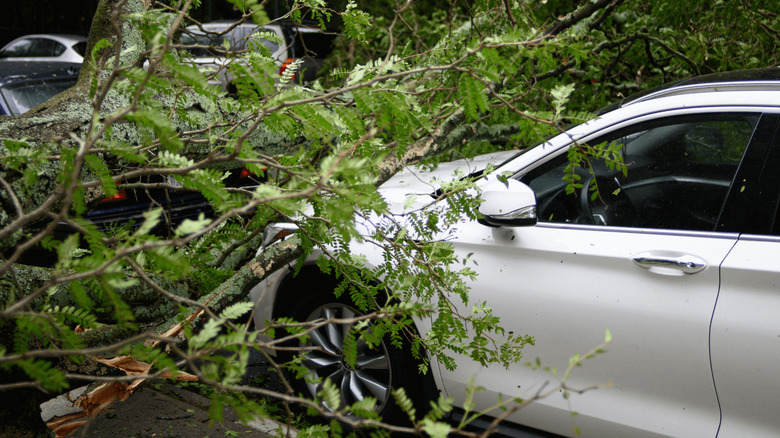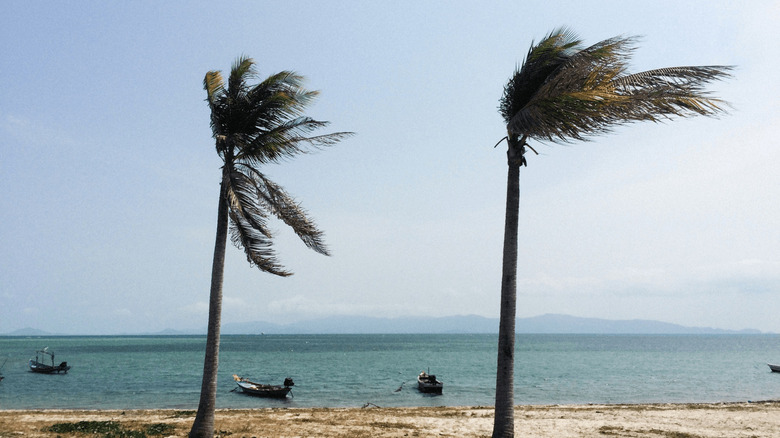Planning
Alexey Demidov/Unsplash
Hilary I. Lebow
You’re on your dream vacation in a tropical paradise and the bad news has arrived: a powerful storm is heading your way. If you’re unable to leave in the days leading up to the hurricane, you’ll need to take some precautions to hunker down inside the hotel and keep you and your family safe.
The good news is that most hotels have an emergency plan in place in case a natural disaster occurs while you’re on vacation. This could include designated safe zones, back up generators, food, bottled water, and first aid supplies. If you’re close to the ground level, ask the hotel staff if you can change rooms. Aim for the third floor, where you’ll be out of the immediate flood zone but not so high up that you have to worry about roof damage and the brunt of high winds.
Once the hotel staff have informed you of their emergency plan, it’s a good idea to make a beeline for the nearest town and start gathering supplies. You’ll need at least a full day to shop, likely wait in long lines, and prepare your hotel room for the hurricane. The sooner you start the process, the better, as supplies tend to dwindle leading up to the storm.
How to prepare for the hurricane

Vikks/Shutterstock
First, head to the nearest store and stock up on food, bottled water, flashlights, extra batteries, extra medication, anti-inflammatories, first aid supplies, and purification tablets, in case tap water becomes unsafe to drink. It’s best to gather enough supplies for three days, according to the National Oceanic and Atmospheric Administration (NOAA). Also try to find items to keep you and your family entertained, like books, games, or a deck of cards.
Once you’re back to your hotel room, charge your phone and other devices, so you can keep tabs on developing emergency information. Once you’re done, unplug everything, including appliances in the room. Fill up the bathtub with water which you can use to flush the toilets, says the Centers for Disease Control and Prevention (CDC). Draw the blinds closed so you’re protected from flying glass, should the windows blow out. Bring in everything off the patio, like chairs and grills, so there’s less risk of a dangerous item getting picked up and thrown through the window.
It’s best to set up a safe zone away from all windows, sliding glass doors, and skylights, such as the bathroom or a narrow hallway. If you can, pull the mattress from the bed and move it into your designated spot, so you have a safe place to sleep and hang out. It’s also a good idea to pack up your stuff, in case emergency officials end the stay-in-place order and tell you to evacuate.
What to do during the hurricane and afterwards

Michael Jin/Unsplash
When the storm makes landfall, move indoors and stay there, even if it looks like there’s not much going on. Leave the ground level, as the most dangerous part of a hurricane is the storm surge and flooding. Don’t try to get footage near the windows or on the balcony. Keep the curtains closed and go to your designated “safe zone.”
Your body may react to atmospheric pressure changes. If you develop a migraine or joint pain, take an anti-inflammatory. Power on your devices, so you can stay informed of evacuation orders. Try to stay calm and hydrated, as it’s easy to forget the basics when you’re stressed. If the windows of your room blow out, grab your belongings and move to the interior of the hotel, like a conference room or secure hallway.
After the storm passes, stay in place until you’re told it’s safe to leave. Steer clear of damaged areas and take the stairs, in case power outages stall the elevators. Be sure to stay away from downed power lines and avoid walking through flood zones, as the water may be contaminated, according to the Federal Emergency Management Agency (FEMA). Take photos of any damaged personal items for insurance purposes. As soon as possible, check up on your neighbors and let loved ones know you’re okay. The community will need time to heal after a natural disaster, so lend a helping hand wherever you can.

